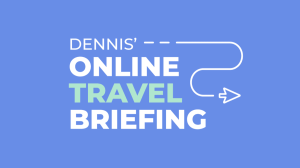Evoking Travel Inspiration Online to Combat Covid Anxieties
Skift Take

Dennis' Online Travel Briefing
Editor’s Note: Every Wednesday, Executive Editor and online travel rockstar Dennis Schaal will bring readers exclusive reporting and insight into the business of online travel and digital booking, and how this sector has an impact across the travel industry.Online Travel This Week
(Editor’s note: Dennis' Online Travel Briefing is taking some time off at the end of the year and will be back on Monday, January 5. Thank you for being loyal readers through the year. Here’s wishing you all the best in 2022.)
Online travel agencies from Booking.com to Tripadvisor, and airlines, including Emirates and easyJet, as well as hotels, have all dabbled with travel inspiration features over the years, but now online travel companies are approaching it in a much more strategic way.
The pandemic and travelers' ambivalence about getting back on airplanes, and as well as fretting about which destination to visit amidst instantly and constantly changing travel restrictions, have propelled the trend, as well as Instagram's power to visually nurture wanderlust.
Travel inspiration, after a fashion, has become an important function for Airbnb. With hundreds of millions of people visiting the Airbnb platform without a destination in mind or even having pre-determined travel dates, Airbn

